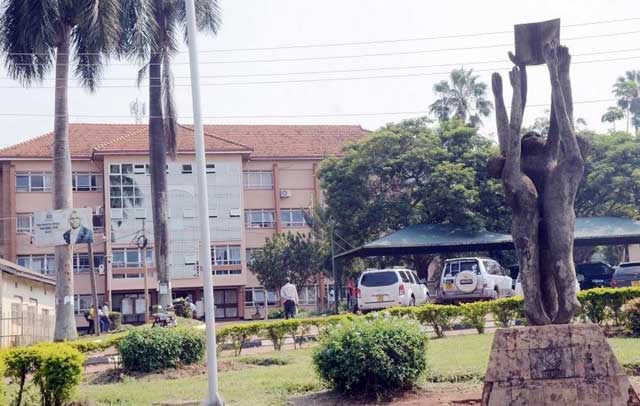
Kampala, Uganda | THE INDEPENDENT | Kyambogo University has decided to phase out several diploma and certificate programs that are commonly offered by other tertiary institutions in an attempt to optimize its resources.
The vice Chancellor, Prof. Eli Katunguka, says that the move will enable the institution to concentrate on its core strengths in bachelor’s and graduate programs and prioritize diploma and certificate programs that are uniquely offered by Kyambogo or those that are not commonly available elsewhere.
Prof. Katunguka noted that in the process of restructuring, Kyambogo University will maintain the existing bachelors and graduate programs.
Established in 2003 through the merger of Uganda Polytechnic Kyambogo (UPK), the Institute of Teacher Education, Kyambogo (ITEK), and the Uganda National Institute of Special Education (UNISE), Kyambogo University initially focused on promoting programs in the fields of the three merged institutes. This is how, the university exclusively offered undergraduate programs for teachers in PTCs and NTC, as well as specialized programs for training special needs educators and sign language interpreters among others.
Out of the three institutions that merged to form Kyambogo University as the third public university in Uganda, 52 diploma programs were inherited. However, as part of the university’s restructuring efforts, 27 of these diploma programs have been phased out.
Additionally, 8 diploma programs have been temporarily shelved but may be reintroduced in the future. Kyambogo University has decided to retain 17 diploma programs. Important to note is that also over time, the university expanded its program Menu. Consequently, it began running diploma and certificate programs that are widely available in several institutions.
But Prof. Katunguka says that with limited staffing resources, it is crucial to prioritize areas where the university can be most productive. By streamlining the undergraduate programs, the staff can focus on delivering high-quality graduate programs, ensuring maximum efficiency and academic excellence.
Kyambogo University is currently operating with only 30 percent of its required staff capacity, employing approximately 400 staff members. To bridge the staffing gaps, the university has resorted to hiring part-time lecturers, resulting in a total staff count of over 600.
The institution has been experiencing a significant increase in student enrollment across various levels, including certificate, diploma, and bachelor’s programs. This surge in student numbers has placed a strain on the university’s limited teaching facilities.
Prior to the closure of schools due to the COVID-19 pandemic, our reporters visited Kyambogo University and discovered that some students were forced to stand during lectures, while others had to share the limited furniture.
This situation has been exacerbated by the continuous growth in the student population. Despite the increase in student numbers over the past two academic years, the university has not provided additional lecture rooms, furniture, or teaching staff. As a result, students face stiff competition for the limited resources available.
When questioned about whether the restructuring of programs would impact the university’s revenue, Prof. Katunguka acknowledged that the affected programs were not major revenue generators for the institution.
He further noted that students who intended to pursue programs that would no longer be offered at Kyambogo University would not be adversely affected. They would have the option to seek those courses at numerous institutions where they are available.
As the number of private universities continues to increase, public universities like Makerere are already considering limiting their undergraduate programs to prioritize graduate programs and research.
*****
URN
 The Independent Uganda: You get the Truth we Pay the Price
The Independent Uganda: You get the Truth we Pay the Price


